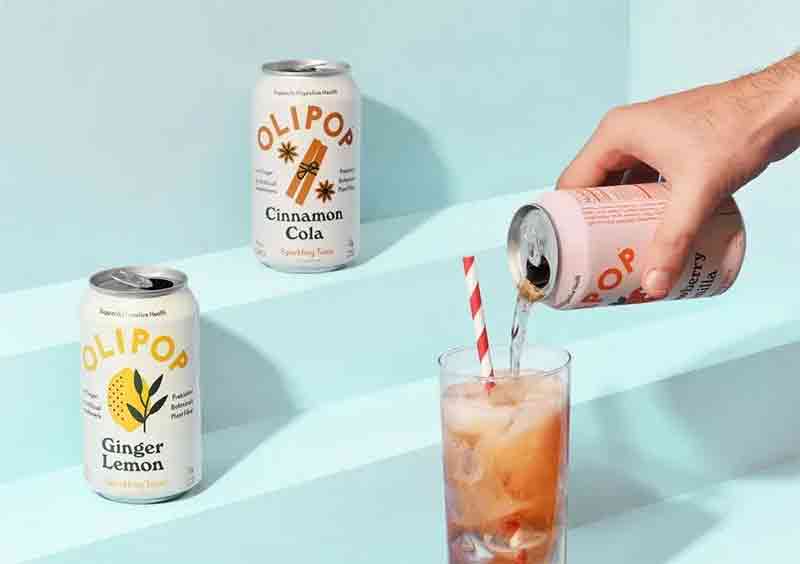The new health trend making the rounds and, as expected, drawing both supporters and opponents to this latest food fad, are probiotic and prebiotic sodas that claim to be made with ingredients that support gut health.
Proponents of these drinks say that probiotic and prebiotic sodas help you achieve your daily recommended allowance (DRA) of fiber, improve digestion, and support immune function. Detractors point out that many such drinks have a high sugar content and may cause digestive issues such as bloating and gas, which counter the purported gut health benefits of these beverages.
To those uninitiated about probiotic and prebiotic foods, and their differences, here is a quick run-down:
Microorganisms such as bacteria that live in our stomach and intestine, collectively referred to as gut bacteria, gut flora, or microbiota, perform many important functions in the body. Probiotics are foods or supplements that contain live microorganisms that help maintain or improve the gut bacteria already in the body. Prebiotics are foods, usually with high-fiber content that people normally cannot digest, but gut bacteria use this as food to help them grow and flourish in the body.
Both prebiotic and probiotic foods are important for human health. Probiotics are found in foods such as yogurt, buttermilk, kefir and other fermented foods such as sauerkraut and kimchi. Prebiotics are present in foods such as whole grains, legumes, beans, peas, bananas, greens, onions, garlic, soybeans and artichokes. In addition, probiotics and prebiotics are added to some foods and available as dietary supplements.
Eating balanced amounts of both probiotics and prebiotics can help ensure that you have the right balance of these bacteria to keep your gut microbiota healthy.
However, studies on the health benefits of probiotics and prebiotics are limited, even as research on the relationship between gut microbiota and various diseases continue.
One study conducted in 2013 confirmed that a wide variety of this good type of gut bacteria can aid in immune system functions, improve symptoms of depression, and help address obesity, among other benefits. They have also been shown to form vitamin K, which the body requires for blood clotting to help heal wounds, or for controlling binding of calcium in bones and other tissues.
Other studies have found that gut bacteria are also known for producing short-chain fatty acids that are used by the cells lining the colon (large intestine).
These cells provide a strong gut barrier that helps keep out harmful substances, viruses, and bacteria from entering the body and causing microbial infections. They also help reduce inflammation and may have the potential to reduce the risk of cancer.
Returning to the increasing popularity of prebiotic and probiotic sodas; some of the reasons attributed to this new trend are that people are increasingly becoming more aware of the importance of gut health and the role of the gut microbiome in overall well-being. As an off-the-shelf readily available beverage, prebiotic and probiotic sodas are a convenient and easy way of consuming beneficial microbes and dietary fibers into a person’s routine.
Doctors, dieticians and nutritionists are divided on the benefits of consuming prebiotic and probiotic sodas. Some experts maintain that these beverages allow for increased consumption of fiber in the diet. This is especially relevant for people who follow a Western diet that is largely based on refined sugars and carbohydrates, as well as on a high intake of animal proteins and saturated fat, with little consumption of whole foods that provide fiber.
Other professionals say it would be better to avoid these drinks until their potential benefits and drawbacks are fully studied and understood. In the meantime, they recommend that it would be better for people to focus on improving their dietary patterns. They point out that a diet rich in whole foods such as whole grains, legumes, nuts and seeds, fresh vegetables and fruits, would be more beneficial than consuming fizzy sugary beverages, even if they carry the prebiotic and probiotic labels.
They also point out that probiotics are strain-dependent and different strains of bacteria offer different health benefits. If you intend to consume probiotic soda for its perceived health benefits in reducing symptoms of a specific disease, then it is vital that you select a probiotic drink that contains the specific strain of bacteria. You will also need to ensure that the bacteria involved has undergone studies and been proven to help with the specific symptom you are looking to address.
Moreover, it is important to remember that the fiber used in prebiotic sodas is usually inulin, which is a common trigger for bloating and gas, especially for people who have a sensitive digestive system, or suffer from irritable bowel syndrome (IBS). In addition, some of these sodas have a high sugar content, which can contribute to heart disease, some cancers, type 2 diabetes, and being overweight.
While prebiotic and probiotic sodas used in moderation are generally safe for most people, it is important to keep in mind that research on probiotics and prebiotics is still developing, and more studies are needed to fully understand their potential health benefits. In the meantime, if you are still bent on using a probiotic or prebiotic soda, then health experts suggest you choose brands with natural ingredients and no added sugars.

